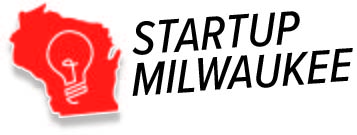Startup Milwaukee has partnered with Cognition for 5 Questions, a series that highlights entrepreneurs, investors, and leaders committed to advancing Milwaukee’s startup ecosystem. This edition features Dave Sachse, an angel investor and founder of the startup consulting company, Midwest Perks. This interview has been edited for length and clarity.
So you’re the owner of Midwest Perks by day and angel investor by night. How does that work?
Midwest Perks is a small consulting boutique that helps early-stage startups with sales strategies, customer acquisition, and investor outreach. I run the business about one-third of my time. The other two-thirds, I focus on investing in early-stage startups, both as an individual angel investor and as part of a family venture fund I started in March 2017. So far, we [the Sachse Family Fund] have looked at more than 150 startups and invested in six. If we don’t necessarily invest in a startup right away, it doesn’t mean we’re not going to try to add value or keep watching them. Midwest Perks then gives us a better ability to understand things like their sales process, customer reaction, and how quickly they can iterate the product. It provides a lot of intel that’s helpful from an investment standpoint that you typically don’t get through normal due diligence.
In terms of intel then, if two companies are equal on paper what would make you invest in one over the other?
A lot of it is the people. I grew up with my family around the poker table, and in poker it’s all about reading people and getting a gut feeling. You don’t have a ton of data when doing early stage investing, so you have to read people to see if they’re going to be transparent and resilient. In the startup realm, and in the entrepreneur world in general, it’s a journey of peaks and valleys and you don’t necessarily want to go along for the ride on each one, you want people that will stay even-keeled and consistently execute. Those are the people we try to look for, not the ones that just want to play CEO or be in magazines. It’s about whether they’re passionate about the problem they’re trying to solve. And you have to consider whether they’re people you want to help for the next five to 10 years because I like to be active and supportive throughout. I want to add strategic value, and one way I can do that is through Midwest Perks. I just try to assist entrepreneurs wherever they want assistance and then get out of their way.
What’s one of the ways you’ve assisted your clients the most?
Some of the founders I work with are a lot more technical, so since they’re the ones who built the product they’re very excited about all it can do. When they pitch, I remind them not to focus too much on all the different features, or do what we call “show up and throw up”. That’s where they just blab on and on about technical specifications without asking prospective customers discovery questions to better understand where the technology can be useful. So I often help a lot of technical founders with that mindset change. That allows them to better qualify leads and get answers earlier on in sales cycle to get paying customers. Your first paying customer not only gives you cash to operate but, more importantly, you get a customer to learn from so you can better iterate the product and solutions, get to market quicker, and build a sustainable business. The two things early-stage startups need most are customers and investors, and unfortunately about 75% of venture capital money is predominantly in three areas – New York, Massachusetts, and California.
Why do you think there’s not more venture capital activity locally?
It’s a combination of a lot of different things, like our conservative mentality and already having a lot of established companies. There’s no doubt angel investing in particular is one of the biggest financial risks, but one of the reasons we do it is to help with job creation and the local economy. But investors in Wisconsin are more comfortable with real estate or private equity-type deals where there’s a lot more data. Not a lot invest the first $500K in a high-growth technology company. As a result, there hasn’t been a strong structure or ecosystem to help budding entrepreneurs with their journey. But that’s slowly starting to change as more investors are looking at startups. Plus, corporations and universities have gotten more involved in the past five years with the help of programs like gener8tor, The Commons, and Startup Milwaukee.
With things slowly changing for Milwaukee, what excites you most right now?
Milwaukee has a lot of strong companies starting to understand that it’s important to do venture arms and support startups. Companies like Northwestern Mutual and Aurora Healthcare are leading by example and screaming at the top of their corporate lungs to invest in the ecosystem to develop and retain tech talent. The economic development of Milwaukee is also phenomenal. You have the Fiserv Forum now and you’re starting to see a lot of buildings being refurbished and new apartment buildings going up. Lots of spots look a lot different than they did 10 years ago. So it’s really cool to see a lot of the transformation that’s occurring. There’s real opportunity in Milwaukee for entrepreneurs to build and create, and I think the seeds are just starting to sprout.
Asha Dewan is the owner of Cognition, a writing agency located in Milwaukee, WI. Cognition specializes in creating digital content to help businesses save time and bandwidth while maintaining visibility.

